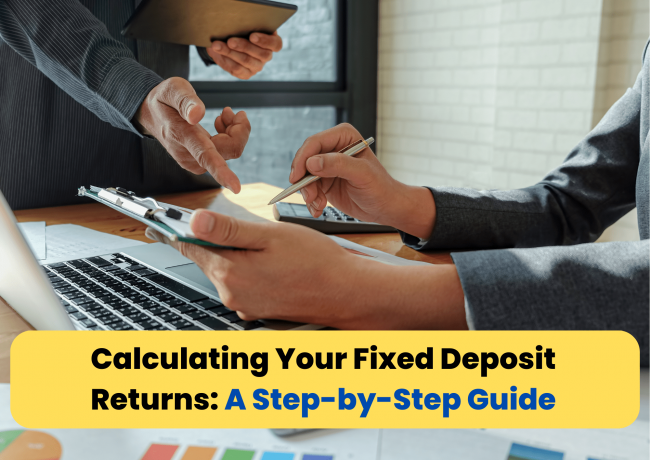In India, tax-saving mutual funds called Equity Linked Savings Scheme (ELSS) Funds are intended to provide investors with the dual advantages of wealth building and tax efficiency.
ELSS funds are tax-free. Because they meet Section 80C of the Income Tax Act and have a strategic allocation to equities, funds under the Equity Linked Savings Scheme (ELSS) are exempt from taxes. ELSS funds allow investors to deduct up to Rs 1.5 lakh from their annual taxable income.

ELSS funds provide investors with a long-term opportunity for substantial wealth appreciation since they focus primarily on equity investments. ELSS mutual funds offer a chance to create wealth through exposure to the dynamic equity markets, in addition to providing a means of reducing taxes. Regarding tax-saving options, ELSS is unique since it can yield higher returns than other options like public provident funds (PPF) or fixed deposits.
Investors should undertake comprehensive due diligence and seek guidance from financial professionals to identify ELSS funds that align effectively with their investment goals and risk appetite.
How to calculate ELSS returns?
Calculating returns on ELSS (Equity Linked Savings Scheme) involves assessing the growth of your investment over a specific period. To calculate ELSS returns, start by noting the initial investment amount (purchase NAV) and the current value of units (redemption NAV) at the end of your chosen investment period, typically three years or more due to the scheme's lock-in period.
Compute the absolute return using the formula:
Absolute Return=(Investment ValueRedemption Value−Investment Value)×100
This formula gives you the percentage gain or loss on your investment over the specified period. For a more comprehensive assessment, beneficial for investments held over multiple years, calculate the annualized return:
Annualized Return=(Number of YearsTotal Return)
This metric provides a standardized average yearly return, factoring in compounding effects.
These calculations enable investors to gauge how well their ELSS investments have performed compared to their initial expectations and market benchmarks. They provide valuable insights for making informed decisions in future financial planning and investment strategies.
Are ELSS returns tax-free?
While ELSS (Equity Linked Savings Scheme) doesn't offer completely tax-free returns, it comes with attractive tax advantages under Section 80C of the Income Tax Act, 1961.
ELSS funds invest most of their money in stocks and similar investments, which exposes them to market risks. However, this also means they can make more money over a long period. Investing in ELSS can be viewed with optimism, given the potential for significant tax benefits and the opportunity for long-term wealth creation.
Investing in ELSS offers a tax deduction of up to ₹1.5 lakh annually from taxable income under Section 80C. This deduction is a significant advantage, reducing investors' tax liability.
Returns generated from ELSS investments are also treated as long-term capital gains (LTCG) if held for more than three years. Under current tax laws, LTCG from ELSS funds ELSS profits above ₹1 lakh in a year are taxed at 10%, and inflation isn't considered.
Despite the taxation on LTCG, ELSS remains popular. ELSS gives you tax benefits and the chance to make more money than other ways to save under Section 80C, like PPF or NSC. This popularity reassures investors about the soundness of their investment choice.
Features of ELSS Mutual Funds
1. ELSS investments don't come with a fixed tenure requirement.
2. ELSS Funds are the best-performing investment platform in the tax-saving sector, with long-term returns of between 10 to 12 per cent. But similar to any equity investment, there is some risk associated with ELSS as well.
3. You gain from both tax savings and capital appreciation on ELSS investments.
4. Investors have the flexibility to choose between receiving regular income through dividend payouts or opting for the growth option that emphasizes capital appreciation.
5. Among all tax-saving options, they have the shortest mandatory lock-in period of three years.
6. Fund managers diversify investments across various stocks and sectors, reducing the risk associated with a concentrated portfolio.
7. Investors can choose to invest through SIPs, allowing them to contribute small amounts at regular intervals, promoting disciplined and systematic investing.
What are the factors to consider before investing in ELSS?
Three major things to consider before investing in ELSS are;
Investment Duration: Consider investing in ELSS funds if you plan to keep your money invested for more than five years. The nature of ELSS funds, being linked to the stock market, benefits from a longer investment period to manage fluctuations in market conditions.
Returns: ELSS funds don't guarantee fixed returns since they depend on how well the underlying securities perform. However, if you're willing to invest for more than 5 years, ELSS has the potential to offer higher returns compared to other tax-saving options.
Lock-in Period: Once you invest in ELSS mutual funds, your money is locked in for three years. During this time, you cannot withdraw or sell your holdings. It's essential to be aware of this mandatory lock-in period before choosing ELSS as an investment option.
What is the best time to invest in ELSS Mutual Funds?
A better way to make the most of ELSS funds is to adopt a long-term perspective. Instead of rushing at the end of the year, plan your investments at the beginning of the year and consider using Systematic Investment Plans (SIPs). By investing consistently throughout the year, you can minimize the impact of market ups and downs, potentially building more wealth over time.
In an effort to reduce taxes, a lot of investors place money into Equity Linked Savings Scheme funds toward the end of the fiscal year. This might not be regarded as an appropriate plan of action. Saving money on taxes is unquestionably a factor to take into account when investing in these products.
Who Can Invest in ELSS Funds
If you're someone who has recently begun earning.
If your sole preference is to be at low-risk investments, then this is your secure investment platform.
If you're an investor trying to reduce the burden of taxes and diversify the assets you own.
ELSS Mutual Funds are accessible to investors of all ages. Investing in three or four top-performing ELSS funds is advised by market professionals.














